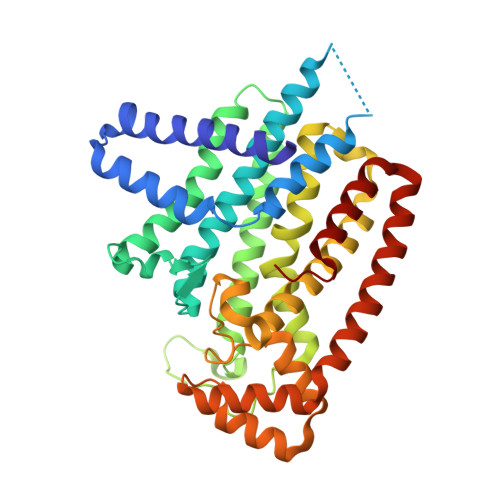Inhibition of Trypanosoma Brucei Cell Growth by Lipophilic Bisphosphonates: An in Vitro and in Vivo Investigation.
Yang, G., Zhu, W., Kim, K., Byun, S.Y., Choi, G., Wang, K., Cha, J.S., Cho, H., Oldfield, E., No, J.H.(2015) Antimicrob Agents Chemother 59: 7530
- PubMed: 26392508
- DOI: https://doi.org/10.1128/AAC.01873-15
- Primary Citation of Related Structures:
5AEL, 5AFX, 5AHU - PubMed Abstract:
We report the results of a screen of a library of 925 potential prenyl synthase inhibitors against Trypanosoma brucei farnesyl diphosphate synthase (TbFPPS) and against T. brucei, the causative agent of human African trypanosomiasis. The most potent compounds were lipophilic analogs of the bone resorption drug zoledronate, some of which had submicromolar to low micromolar activity against bloodstream form T. brucei and selectivity indices of up to ∼ 300. We evaluated the effects of two such inhibitors on survival and parasitemia in a T. brucei mouse model of infection and found that survival increased by up to 16 days. We also investigated the binding of three lipophilic bisphosphonates to an expressed TbFPPS using crystallography and investigated the thermodynamics of binding using isothermal titration calorimetry.
- Leishmania Research Laboratory, Institut Pasteur Korea, Seongnam-si, Gyeonggi-do, Republic of Korea Interdisciplinary Programs of Functional Genomics, Yonsei University, Seoul, Republic of Korea.
Organizational Affiliation:


















